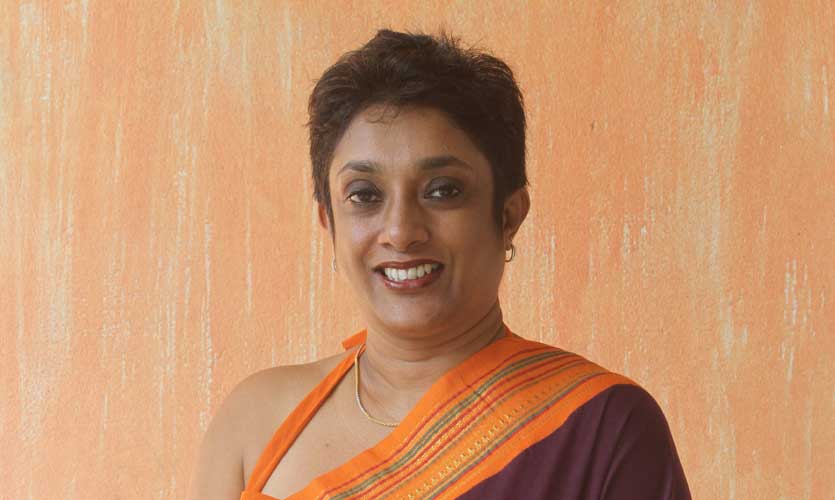Jan 10 2017.
views 901The walled Galle Fort will come alive with authors and literary enthusiasts as they gather to celebrate the written word. Since its inception ten years ago, the Fairway Galle Literary Festival has come a long way. Feted as one of the greatest literary festivals in South Asia, this year will be no exception given the exhaustive list of authors.
Amrita Pieris, the Festival Director who has continued to do an exceptional job in organising this festival which is not a mean feat explains more about the festival which will host 71 authors and journalists from around the world.

How did you get involved in the FGLF?
After I left my advertising job, a friend persuaded to me to meet the Festival team to consider whether I wanted to take the job of Festival Director. I met them only because I was a fan of Shyam Selvadurai. Like a true groupie, I had a copy of Funny Boy in my handbag to get autographed, but was too shy to take it out and ask him!
How long have you been working for the FGLF and, of that, how many years as the festival director?
I've been Festival Director for 3 Festivals 2012, 2016 and 2017
What is the function of a Festival Director?
To orchestrate the many elements of the Festival such as Curating, Programming, Sponsorship, Logistics, Set up, Design etc. All this needs to come together effectively to create a world class event. So, as you can see, the Festival Director has many roles and responsibilities, including making the coffee!
What do you think makes the FGLF so unique?
The intimacy and charm of the Galle Fort, varied programming that includes everything from serious literary conversations to fun gourmet, and last, but by no means least, an enthusiastic and committed audience and spectacularparticipants.
How has the festival developed over the last few years?
The programming is constantly broadening and growing. This year we have 90 participants presenting 110 events. New additions include programming for youth and a day of Sinhala Programming. We have also increased the number of venues. The Fairway Pavilion will be a new main venue this year.
How do you go about planning an event of this size?
It takes time; the planning for this Festival started immediately at the end of the last Festival, so it has been 1 year in the making. Numerous lists, attention to detail, close relationships with our partners and of course a very committed and talented team is what it takes to pull the Festival off.
Are there any main themes to the festival programme this year?
We don’t work by themes but let the participants determine the programme.
Any special last minute additions to the programme?
Yes. Kate Tempest, an acclaimed musician, poet, novelist and playwright, will perform from her new album Let Them Eat Chaos. N. Ram, Chairman and Publisher of The Hindu Group of newspapers will give a brilliant talk titled Free Speech Deficits.
Sri Lankan writers at the Festival will read Anne Ranasinghe’s poems during their sessions to commemorate her passing. Finally Nayanjot Lahiri, whose talk on the Emperor Ashoka sold out within hours of the box office opening, will do a second talk for disappointed festivalgoers.
Do you think that festivals such as the FGLF are embracing a celebrity culture?
Other Festivals might do so. While we do have headliners, we also focus on poetry, local and emerging writers and some erudite programming in our Sunset Series.
What are the proposed highlights of the festival?
This is always a difficult question as there is so much I could talk about. But I will mention two events that I think everyone should see. They are both performances. The first is Luke Wright’s What I Learned from Johnny Bevan that had a sold out 3 week run in London’s West End! Another international success is Alison Wearing in Confessions of a Fairy’s Daughter.
What events at the Festival are you particularly excited about?
I love to cook so I’m hoping to catch Fuchsia Dunlop and Jason Licker’s cookery classes.
How have ticket sales been?
Very good, but we’re hoping for a last minute surge.
Where do you stand on new and emerging authors?
We encourage them and provide a space for them at our Festival.
What are the challenges of organising a festival of this nature?
Too many to mention but all of them are ultimately manageable!
0 Comments